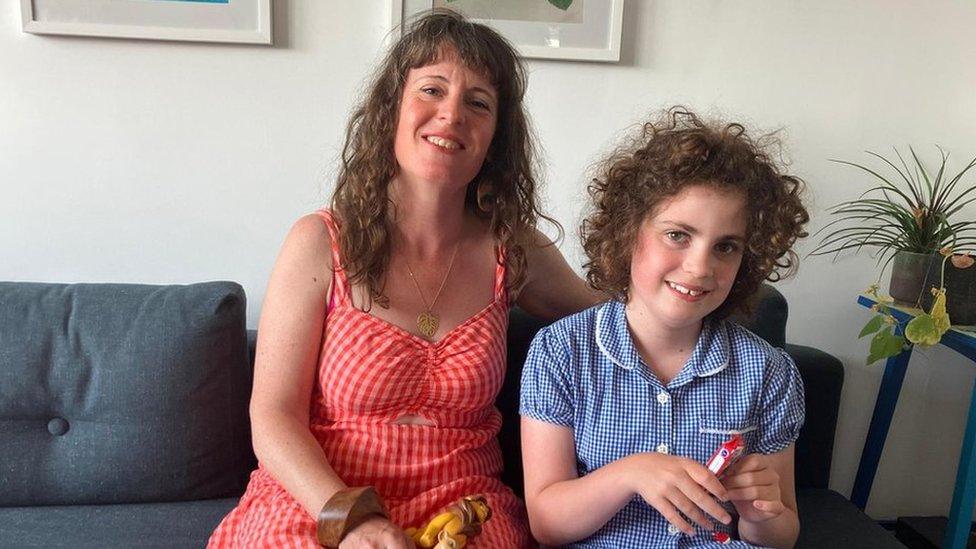200 SEND children not having needs met Bristol City Council says
- Published

Bristol City Council is currently in the process of creating hundreds of additional SEND spaces
Almost 200 children with special educational needs and disabilities (SEND) are not having their needs met, authority leaders have said.
In a meeting held by Bristol City Council last week, it was revealed 193 SEND pupils who have an education, health and care plan (EHCP) are still waiting for a suitable school place.
Audit committee members heard there was a lack of suitable places in schools run by the authority.
There is also a rise in demand.
The lack of specialist educational spaces has left the council paying for expensive SEND provision at independent non-maintained schools.
Jen Smith, a Bristol mum whose son is autistic, said she would like the council to work on specialist schools that fit the right profile of children so they are not "just put anywhere because of lack of spaces".

Jen Smith said she would like to see schools for specific needs rather than just putting SEND children into any gap
Her son was given an Education Other Than At School (EOTAS) provision, which is home based.
Ms Smith said this can be a positive solution for some, but without a consistent social care package alongside it, her son had been left at home with no social interaction which for many SEND children can bring its own mental health difficulties.
"During the pandemic everyone was worried about the mental health of children being home-schooled and without the normal social interactions but we still have children who are autistic and out of education who are going through that daily," she said.
'Impact of trauma'
One council officer told the audit committee meeting that the authority is around 400 places short of meeting its EHCP requirements.
"The current number we've got coming through still leaves us short [and] we have over 200 pupils with EHCPs in our independent non-maintained schools and they are high cost.
"All of our special places are taken up," they said.
The officer said the council is looking at the wait for appropriate places and trying to find a short-term fix.
However, he said: "Tomorrow, four children could be assessed and need £200,000 worth of treatment a year [which] would be nearly another £1m a year."
Ms Smith said unless the right solution is found, the long-term impact of moving children around instead of giving them EOTAS provisions, can be that even if a space becomes available in a school setting, the child has been through so much trauma it is hard for them to fit into the system easily.
A public consultation on proposed changes to how the council funds SEND provision, which aims to slash the deficit while meeting youngsters' needs, runs until 13 December.

Follow BBC West on Facebook, external, X, external and Instagram, external. Send your story ideas to: bristol@bbc.co.uk , external
Related topics
- Published21 June 2023

- Published15 March 2023
